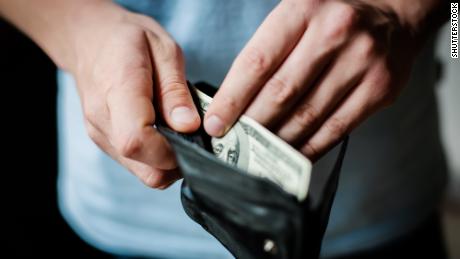(CNN)Americans are feeling slightly better about the economy, but painfully high inflation is still keeping consumer sentiment at close to an all-time low, according to preliminary survey data released by the University of Michigan on Friday.
The preliminary index for the university’s Surveys of Consumers rose to 51.1 in July from the record low of 50 posted in June.
“The share of consumers blaming inflation for eroding their living standards continued its rise to 49%, matching the all-time high reached during the Great Recession,” said Joanne Hsu, Surveys of Consumers director, in a statement. “These negative views endured in the face of the recent moderation in gas prices at the pump.”
The survey also showed that expectations for long-term inflation continue to improve. Median expectations for inflation levels five years from now dropped to 2.8%, which lands below the range of 2.9% to 3.1% seen during the past 11 months.
The consumer sentiment data follows the release of new retail sales figures, which showed a slight pullback in spending as Americans battle high prices on everything from cookies to clothing. Economists and policymakers are closely watching for any substantial dip in US consumer spending, which drives almost two-thirds of the economy.
Retail sales grew 1% in June from May to $680.6 billion and were up 8.4% from June 2021, according to data released earlier Friday by the US Census Bureau.
However, since retail sales figures are not adjusted for inflation, the higher number likely reflects higher prices as opposed to more spending. Inflation, as measured by the Consumer Price Index, surged by 1.3% last month and is up 9.1% from last June.
Some of the biggest year-over-year sales gains were at gas stations, which were up 49.1%; miscellaneous store retailers, up 15.1%; and food service and drinking places, which were up 13.4%. Sales at electronics and appliance stores were down 9.1%, reflecting the ongoing trend of consumers eschewing big-ticket items for service-related spending.
Friday’s data will be closely scrutinized by the Federal Reserve, which is in the throes of trying to rein in the highest inflation in 40 years without tipping the economy into recession.
While some analysts and economists previously expected the Fed to raise its benchmark lending rate by another 75 basis points when it meets at the end of the month to discuss monetary policy, a recent slew of robust economic data has markets preparing for more aggressive action from the Fed — including a potential rate hike of 100 basis points — to cool consumer demand.
Fed Governor Christopher Waller, during a speech Thursday at the Rocky Mountain Economic Summit, indicated he supports another 75-basis-point hike. However, he said he would consider going even higher if retail sales and housing data came in hotter than expected.
June’s retail activity may just be hot enough to support that supersized hike, said Ted Rossman, senior industry analyst at Bankrate.
“The fact that retail sales are more or less treading water at a time when inflation is high, and people are spending more of their discretionary dollars on travel and dining out, I think there’s a possible read on this that emboldens the Fed to go big,” he said.
Source: Read Full Article
-
Unruffled By Pitch, RBI Governor Bats Like Dravid
-
Southwest under scrutiny after wave of storm cancellations
-
Alexi Hawley’s Perfectman Pictures Appoints Rachel Abarbanell As SVP, Launches Development On New Legal Drama Series For ABC
-
The $1,600 iPhone
-
At $4.3 bn, imports from Russia jump nearly 7 times in June

